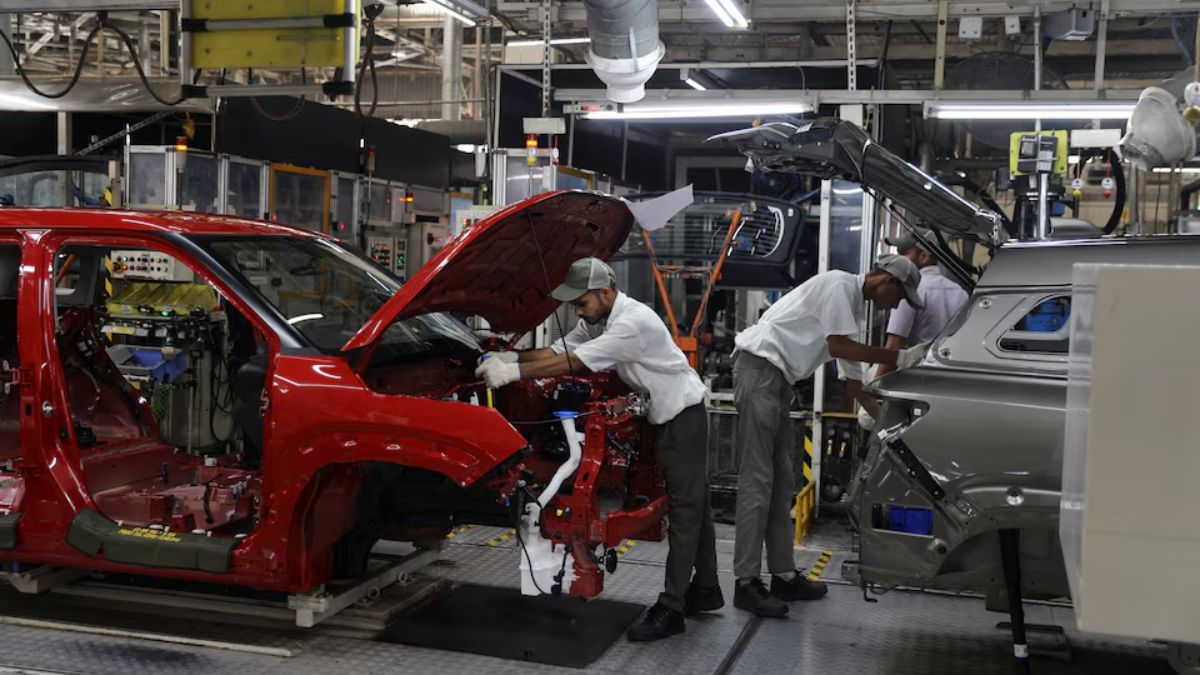Global automakers are increasing car exports from India to Europe, building on recent success in Japan and marking a shift for the country’s sprawling manufacturing facilities, which have historically focused on Latin America, Africa, and the Middle East.
According to Nikkei Asia report, citing analysts and industry executives, the surge in shipments to Europe and the UK underscores India’s growing role as a low-cost global manufacturing hub.
Carmakers such as Suzuki Motor and Honda Motor have identified India as a vital part of their global production strategy, including for electric vehicles, amid rising competition from Chinese manufacturers, added the report.
According to Indian government estimates, car exports to the UK, Germany, Spain, and Norway totaled $63 million between April and August — representing just 2% of total exports but nearly nine times the shipments recorded during the previous fiscal year.
The progress follows similar growth in the Japanese market, where car exports soared nearly fourfold to $813 million in the fiscal year ending March. In the five months through August, exports to Japan reached $328.64 million.
“India gives a clear cost advantage for manufacturing,” Nikkei Asia quoted Rahul Bharti, senior executive officer for corporate affairs at Maruti Suzuki, the Indian subsidiary of Suzuki, as saying.
“[A] skilled workforce, good infrastructure and reliable suppliers help make high-quality products at low cost. Manufacturing here has helped to optimise resources and make operations more competitive,” Bharti added.
Suzuki plans to invest 1.2 trillion yen ($7.7 billion) by 2031 to increase its annual manufacturing capacity in India from 2.5 million to 4 million units, aiming to make the country a key electric vehicle hub. Since launching production of its midsize EV eVitara in western India in August, the company has already shipped over 7,400 units to European markets, including the U.K., Germany, Norway, and France, reported Nikkei Asia.
Quick Reads
View AllExports to Japan are also picking up. Honda recently announced plans to produce one of its upcoming EVs in India for export to Japan and other Asian markets.
Reducing reliance on China
Overall car exports from India are expected to rise sharply, with global automakers committing billions in fresh investment.
Hyundai Motor will invest $5 billion by 2030, while Toyota signed a memorandum of understanding with Maharashtra in 2024 to spend over $2.25 billion on new factories.
The investment wave aligns with efforts by manufacturers to reduce reliance on China for both production and sales. India, the world’s third-largest auto market, is benefiting from shifting consumer demand from hatchbacks to globally appealing SUVs, supported by a $2.9 billion government program to boost local vehicle and component production.
According to the report, citing experts, India-made cars could become competitive alternatives to Chinese vehicles, whose market share in Europe is projected to double to 10% by 2030 as per consultancy AlixPartners.
“Across Southeast Asia, the Middle East, Africa and even parts of Europe, the competitive landscape is shifting as Chinese manufacturers scale rapidly with sharply priced EVs and compact ICE (internal combustion engine) vehicles,” Harshvardhan Sharma, group head for automotive technology and innovation at Nomura Research Institute, told Nikkei Asia.
“In that context, India is emerging as a credible counterweight - a cost-competitive, value-rich manufacturing base that global automakers can leverage to respond to China’s momentum,” Sharma added.
Exports from April to October reached 514,622 units, nearly 67% of total shipments in FY25, with Maruti Suzuki leading the pack, followed by Hyundai, Nissan, and Volkswagen, according to the report, citing the Society of Indian Automobile Manufacturers.
South Africa remained the top destination, accounting for 17% of shipments valued at $1.24 billion, followed by Saudi Arabia (16.5%), Mexico (13%), Japan (11%), and the UAE (7%), Indian government data showed.
While South Africa, Saudi Arabia, and Mexico have long been key markets due to product and price alignment with India, improvements in domestic standards, including safety, are helping Indian automakers expand into new global markets.
Auto parts industry driving global exports
India’s auto parts industry is witnessing rapid growth, further cementing the country’s appeal as a global manufacturing hub, experts said.
While multinational firms such as Bosch and Tenneco operate factories in India, local players including Motherson Group, Sona Comstar, Bharat Forge, and Lumax Group have been exporting for years, building confidence in their supply chains.
Component exports from India reached $22.9 billion last fiscal year, with Europe accounting for 29% of shipments, according to the Automotive Component Manufacturers Association of India.
“India’s supplier base has evolved into a sophisticated ecosystem capable of delivering to global performance and quality benchmarks,” said Nomura’s Sharma.
“As a result, export acceptance is widening in advanced markets. … For carmakers that invested early in building an efficient India footprint, those strategic bets are now beginning to yield meaningful returns.”
Analysts noted that focusing on exports also allows automakers to maintain factory utilisation when domestic sales slow.
“If companies are not able to sell locally, production for exports can fill capacity, making sure they don’t incur losses because of underutilisation,” Nikkei Asia quoted VG Ramakrishnan, managing partner at automotive consultancy Avanteum Advisors, as saying.
With inputs from agencies
)